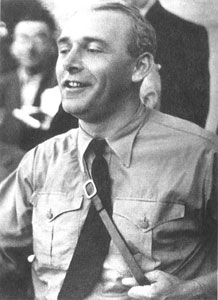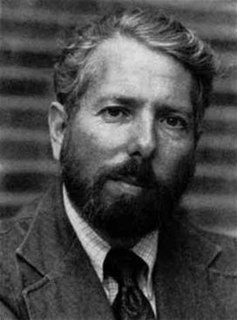A Quote by Wilhelm von Humboldt
We cannot assume the injustice of any actions which only create offense, and especially as regards religion and morals. He who utters or does anything to wound the conscience and moral sense of others, may indeed act immorally; but, so long as he is not guilty of being importunate, he violates no right.
Related Quotes
Religion and race belong together. German man can only assimilate religious faith and religious thought with a German mind and in a German way. We must not think we can come to God except through our Volk....Wherever our blood rises in protest we act immorally, even though others may try to prove it to be moral.
Conscience, the sense of right, the power of perceiving moral distinctions, the power of discerning between justice and injustice, excellence and baseness, is the highest faculty given us by God, the whole foundation of our responsibility, and our sole capacity for religion. ...God, in giving us conscience, has implanted a principle within us which forbids us to prostrate ourselves before mere power, or to offer praise where we do not discover worth.
Must the citizen ever for a moment, or in the least degree, resign his conscience to the legislator? Why has every man a conscience, then? I think that we should be men first, and subjects afterward. It is not desirable to cultivate a respect for the law, so much as for the right. The only obligation which I have a right to assume is to do at any time what I think right... Law never made men a whit more just; and, by means of their respect for it, even the well-disposed are daily made the agents of injustice.
. . . as to moral feeling, this supposed special sense, the appeal to it is indeed superficial when those who cannot think believe that feeling will help them out, even in what concerns general laws: and besides, feelings which naturally differ infinitely in degree cannot furnish a uniform standard of good and evil, nor has any one a right to form judgments for others by his own feelings. . . .
Although a person acting under authority performs actions that seem to violate standards of conscience, it would not be true to say that he loses his moral sense. Instead, it acquires a radically different focus. He does not respond with a moral sentiment to the actions he performs. Rather, his moral concern now shifts to a consideration of how well he is living up to the expectations that the authority has of him.
It is not the conscience which raises a blush, for a man may sincerely regret some slight fault committed in solitude, or he may suffer the deepest remorse for an undetected crime, but he will not blush... It is not the sense of guilt, but the thought that others think or know us to be guilty which crimsons the face.
The wise man does nothing but what can be done openly and without falseness, nor does he do anything whereby he may involve himself in any wrong-doing, even where he may escape notice. For he is guilty in his own eyes before being so in the eyes of others; and the publicity of his crime does not bring him more shame than his own consciousness of it.
If there is no absolute moral standard, then one cannot say in a final sense that anything is right or wrong. By absolute we mean that which always applies, that which provides a final or ultimate standard. There must be an absolute if there are to be morals, and there must be an absolute if there are to be real values. If there is no absolute beyond man's ideas, then there is no final appeal to judge between individuals and groups whose moral judgments conflict. We are merely left with conflicting opinions.
The objections to religion are of two sorts - intellectual and moral. The intellectual objection is that there is no reason to suppose any religion true; the moral objection is that religious precepts date from a time when men were more cruel than they are and therefore tend to perpetuate inhumanities which the moral conscience of the age would otherwise outgrow.
A performer may be taken in by his own act, convinced at the moment that the impression of reality which he fosters is the one and only reality. In such cases we have a sense in which the performer comes to be his own audience; he comes to be performer and observer of the same show. Presumably he introcepts or incorporates the standards he attempts to maintain in the presence of others so that even in their absence his conscience requires him to act in a socially proper way.








































